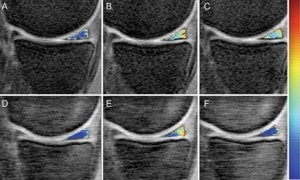Does Running Cause Arthritis? How About Ultra-Marathons?
The running knee arthritis debate continues! I live in Boulder, Colorado which is arguably the fittest city in America. You can get completely shown up by almost any athlete of any age on any day if you’re on a Boulder trail, so don’t be surprised if 60-something mother of 3 wisps past you like a gazelle! As you might imagine, Colorado has it’s share of ultra-marathoners and extreme athletes that will run 100 miles or more in a race. If you keep up with this blog, you’ll remember a couple of studies on knee arthritis and running. In one, the authors found that patients involved in light exercise had less arthritis and those who ran had more arthritis. In another study, runners were no worse off when it came to arthritis detected on x-rays when compared to non-runners. This was surprising to many physicians, as the recommendation for knee arthritis patients has long been to avoid running. Recently I also blogged on an animal study where rats that run for very long periods developed arthritis. So who’s right? Does the distance matter? I found a few studies that were interesting. One recent investigation looked at the serum COMP markers in ultra-marathoners (this is a bio-marker of cartilage damage that increases as cartilage breaks down). The amount of cartilage breakdown markers in the blood of ultra-marathoners was proportional to the distance they had run (samples were taken at check points). This makes sense, as it seems to show a dose dependent relationship between long-distance running and cartilage damage. Another study showed more bone breakdown markers in participants running a 246 km race. Other studies have shown similar things (study 1, study 2). So we know that cartilage and bone is breaking down during these ultra-marathon events, but does that lead to arthritis, or is the cartilage or bone being repaired due to local stem cells? There are a number of studies that show no increase in cartilage or meniscus MRI lesions in the knees after running or completing a marathon. Having said that, there’s at least one study showing thinner cartilage in Marathon runners on knee MRI. What else is there? In order for the increases in cartilage breakdown markers to be associated with arthritis, there would either need to be evidence of long-term imaging changes after a big run, or these patients would have to suffer from more arthritis than their non-marathon running peers. On the former topic, there is at least one well done study that shows that a specific MRI signal in the knee meniscus is changed after a marathon (T1rho), which is indicative of less GAG (the chemical that helps cartilage and meniscus maintains their shock absorbing abilities). More interesting is that these changes don’t recover at 3 months after a race. On the topic of increased arthritis, a German study compared 20 former elite marathon runners to age and BMI matched control patients who didn’t run. They didn’t find any more arthritis in the marathon runners. Having said that, there may be what’s called “selection bias” in this particular study, in that marathon runners who had significant arthritis issues would be unlikely to make it to elite status, so the study may select out for runners with good knees. The upshot? Running long distances is associated with evidence of cartilage and meniscus breakdown in the knee. This isn’t concerning in and of itself, except that at least one well done study shows that some of these changes in the meniscus don’t quickly recover. Ultimately, without a definitive study showing that marathoners or ultra-marathoners get more arthritis, there’s no way to know if these small areas of damage are ultimately fixed by the body. If I was an ultra-marathoner, I think I’d pay close attention to my knees and be very proactive about treating even small problems with biologic therapies. However, if my knees never bothered me, then I likely wouldn’t worry about it!

If you have questions or comments about this blog post, please email us at [email protected]
NOTE: This blog post provides general information to help the reader better understand regenerative medicine, musculoskeletal health, and related subjects. All content provided in this blog, website, or any linked materials, including text, graphics, images, patient profiles, outcomes, and information, are not intended and should not be considered or used as a substitute for medical advice, diagnosis, or treatment. Please always consult with a professional and certified healthcare provider to discuss if a treatment is right for you.

